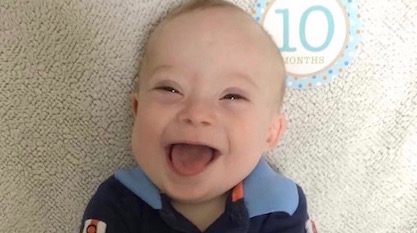 Culture & Ethics
Culture & Ethics
 Evolution
Evolution
On World Down Syndrome Day, Consider Human Exceptionalism


Today is World Down Syndrome Day, and I would like to take a moment to consider human exceptionalism. Children and adults live with Down Syndrome all over the world. Only human beings would sacrifice to provide for the most vulnerable among us.
The United Nations reports:
The estimated incidence of Down Syndrome is between 1 in 1,000 to 1 in 1,100 live births worldwide. Each year approximately 3,000 to 5,000 children are born with this chromosome disorder and it is believed there are about 250,000 families in the United States of America who are affected by Down Syndrome.
Some people suffering from this genetic disease live in caring families — this is the case for a relative of mine with Down Syndrome. Other persons with Down Syndrome are aborted before birth — Wesley Smith has written before about how Iceland aborts nearly all those with the condition. There are also many, many children with Down Syndrome waiting for a family to adopt them — some are here in the U.S., others are abroad, sometimes living in institutions.
Evolutionary theory teaches the “survival of the fittest.” But caring for someone with Down Syndrome represents just the opposite way of thinking. Those who journey on this road have often thrown away materialistic expectations — that fame, amusement, and money give meaning to life. Instead of serving themselves, they serve another. Consider that the USDA estimates the average cost of raising a single child, without special needs, at between $12-$25,000 annually.
But we know, gazing into the eyes of people like Lucas Warren, last year’s Gerber baby (pictured above), that he is not just a compilation of atoms and molecules. He is a person, and because of that, a priceless treasure.
Photo: Lucas Warren, via YouTube/Radio.com.
